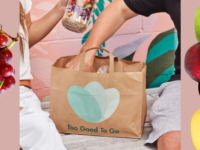Social enterprise start-up Yume has distributed 7 million kilograms of surplus food, diverting it from landfills and going to waste.
Through this initiative, the start-up says it has returned more than $19 million to leading companies that use the platform to commercialise their surplus food.
Functioning as a business-to-business (B2B) platform through its online marketplace, Yume enables suppliers, such as manufacturers, primary producers, and importers, to sell surplus and unsold food products at discounted prices to buyers in the food industry, including restaurants, cafes, and catering businesses.
Yume founder and CEO Katy Barfield (pictured) shared that managing excess finished goods inefficiently has been overlooked for so long and is a major source of untapped sales opportunities for businesses.
“By plugging into Yume, manufacturers sell 128 per cent more excess food with a 150 per cent return increase,” Barfield explained. “The technology also provides data so manufacturers can measure their impact as they deliver on the triple bottom line.”
Unilever, Mars Food, and Kellanova are just some of the pilot partners who have tested the company’s technology, with leaders across the food industry implementing the program.
“In the first three months of using Yume technology, Kellanova sold 150,000kg of excess food at significantly increased returns,” Ben O’Brien, sales director,at Kellanova ANZ, said. “By digitising our processes and expanding our sales channels with Yume, we’re continuing to combat the environmental impacts of excess food while seeing positive returns for the business.”
Nick Bangs, head of country for Unilever ANZ, said that as one of the world’s biggest food producers, the company has dedicated a business waste squad focused on halving food waste in its direct operations from factory to shelf by 2025.
“One of the key ways we’re delivering on this goal is through our work with Yume, which has enabled us to commercialise surplus stock while reducing our environmental impact efficiently,” Bangs said. “This partnership shows a triple bottom line, where people, planet and profit thrive.”
This story first appeared on our sister publication Inside FMCG













